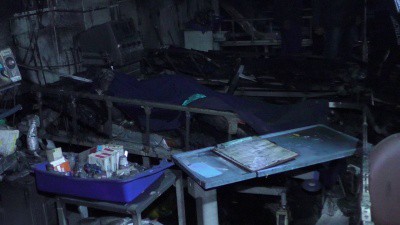Ahmedabad: The report of the board examining the flames in hospitals in Gujarat’s Ahmedabad and Rajkot, postponed in the Assembly on Tuesday on the Supreme Court’s orders, has accused both the medical clinic administrations and the express government’s arrangements for the misfortunes.
The Justice D.A. Mehta Commission has made several observations on the responsibility for the fires at the Shrey hospital, Ahmedabad, and the Uday Shivanand hospital, Rajkot.
It has held the management of Shrey Hospital, Ahmedabad, responsible for the incident of fire which took place on August 6, 2020 “for having continued to use patient monitors which had been rendered obsolete having been purchased as far as back as 2003-2004. Merely having them serviced would not absolve the management” and that their continued use was “an invitation for happening of a disaster”.
On the Uday Shivanand hospital fire, the Commission said: “Apart from the various defects, deficiencies, and violations pointed out in the report of the chief fire officer as well as the charge sheet filed by the police authorities, the management of Uday Shivanand hospital was definitely negligent for the reasons set out here in before.”
It also observed that it was mainly due to the faulty policies of the Gujarat government that such incidents couldn’t be avoided, holding the main fault to be the state government’s policy to hire fire personnel on outsourcing basis.
“The state government needs to understand that in every sphere of governance, outsourcing of employees is not only detrimental to an effective and efficient government but it creates a situation, a culture which yields negative results by the way of outright poor performance,” the Mehta Commission observed.
“Further, the state government has to realise that it is required to govern the state effectively and not make a show of governing. The welfare of entire population of the state has to be of paramount consideration,” it added.
On this aspect, it said: “There was a shortage of trained personnel who could be recruited. Unfortunately, no one has gone to the root of the matter. There is a shortage of trained persons due to the faulty and effective policy of recruitment adapted by the state government. Since at least 15 years or more, the state government in its misguided zeal to save revenue, has virtually put a full stop to recruit people, despite the posts falling vacant due to superannuation or other reasons. Therefore, the direct consequences of the faulty defective policies is that, today no qualified or trained personnel are available even if the government wants to hire them.
“In the first instance the state government has to have a negative policy regarding recruitment. In other words, the state government shall have to resolve and ensure that there shall be no outsourcing, by whatever name is called insofar as fire and emergency services are concerned for the entire state of Gujarat,” it said.
To this, the state government claimed that there was no ban on recruitment for fire personnel, but the policy of outsourcing of existing staff was set up as a temporary arrangement, till the regular recruitment was done.
The Commission has also held that had not the state government regularised the illegal building of Shrey hospital, such an incident wouldn’t have occurred.
“The state needs to understand that there cannot be a blanket policy for regularisation of unauthorised construction only on the basis of revenue earned by whatever name it may be called, whether regularisation fees or fine or impact fees and this would apply not only to nursing homes and hospitals but also in cases of schools and educational institutions like coaching classes….” it said.
In its reply, the state government only said that this was just an observation and was not a recommendation.
Further, the probe panel has also pointed out a major lacuna in the health system services.
“If the government does not have data of the total number of nursing homes, hospitals et al functioning in the state of Gujarat, it is inconceivable that the government would be in a position to check as to whether any fire prevention and life safety measures are in place in such nursing homes, hospitals et al. The first step the government is required to do is that all clinics, nursing homes by whatever name is called.



